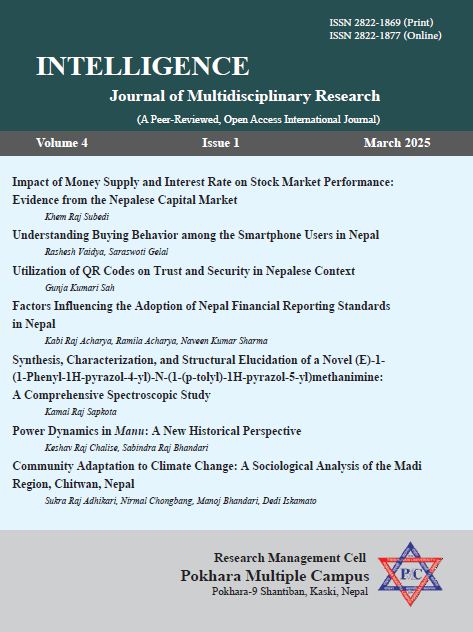Factors Influencing the Adoption of Nepal Financial Reporting Standards in Nepal
DOI:
https://doi.org/10.3126/ijmr.v4i1.76931Keywords:
NFRS adoption Government policy Company size Education level Financial reportingAbstract
This study investigates factors influencing the adoption of Nepal Financial Reporting Standards (NFRS) from the perspective of accountants and auditors in various sectors such as manufacturing, banking, services, and audit firms within Kathmandu Valley. By using a descriptive and causal-comparative research design, this study aims to evaluate the impact of government policy, company size, international environment, education level and initial cost of adoption on NFRS. A structured questionnaire utilizing a five-point Likert scale was used to gather primary data from a purposively selected sample of 400 respondents. Statistical analyses, including descriptive statistics, correlation, and multivariate regression analyses were conducted using Microsoft Excel and SPSS.
The findings reveal that government policy, company size, education level, and the initial cost of adoption have a significant positive influence on the adoption of NFRS. Although the international environment also showed a positive correlation, this was not statistically significant. The study concludes that enhancing these four factors is crucial for promoting NFRS adoption in Nepal, recommending improvements in government policies, and education, and reducing adoption costs. Additionally, larger firms are encouraged to lead in NFRS implementation, fostering better financial reporting practices nationwide. The study's implications are valuable for policymakers, educators, and accounting professionals in Nepal.




